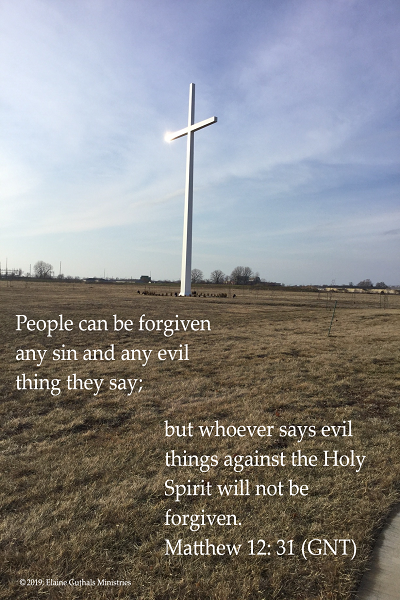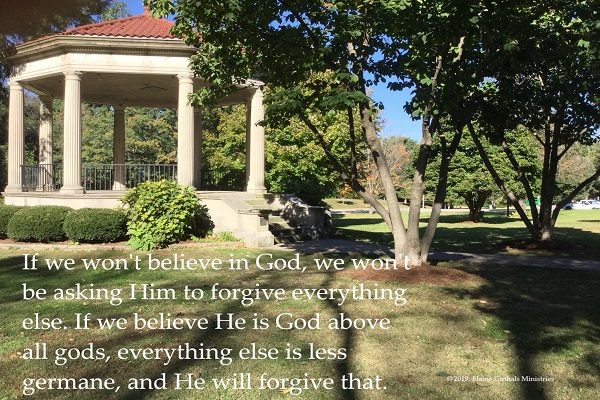Godly sorrow brings repentance that leads to salvation and leaves no regret, but worldly sorrow brings death.
2 Corinthians 7: 19 (NIV)
Scripture: Psalm 51
How does regret affect our Christian walk? It can have a huge impact. Unfortunately, Satan can use it to weaken our faith and undermine our obedience to God. This devotion will look at regret in our Christian lives and what we can do about it.

I saw this video about a chalk board that was set up in New York for a day. On it, pedestrians were to write their biggest regrets.
I got to thinking about regrets we have as Christians. How do regrets affect our walk as Christians?
We can have many regrets. It can be for things we did or didn’t do. Those regrets often hinder our relationship with God.
One of the big regrets can be expressed either through do or don’t. We regret that we sinned. After we become Christians, that can be flipped to say that we regret we weren’t obedient.
We may think that God cannot save us in the first place. At times, the regret makes us a lot less forgiving of our sins than God is. We hear the words that God can forgive our sins, but we think this one sin is just not something He can look passed.
Once we do admit we have need of God in our lives and surrender ourselves to Him, our regrets make it so we can’t forgive ourselves because we are constantly still being challenged by that one sin — and we still keep committing that sin. How can God forgive us when we keep on sinning?
Either way, Satan is having a field day cutting us down. He wants us to keep biting on ourselves because of our regrets. He wants us to feel that we are unworthy of God’s love. He wants us to think God can’t — or won’t — forgive us.
Satan is wrong. Matthew 12: 31 says, “For this reason I tell you: people can be forgiven any sin and any evil thing they say; but whoever says evil things against the Holy Spirit will not be forgiven” (GNT). Read that again — any sin and evil thing they say.

Matthew 12: 31 is Jesus’ words. He would know what sins can and cannot be forgiven because “I [Jesus] and the Father are one” (Jn. 10: 30 NASB). He would know for which sins His sacrifice was atoning.
Jesus didn’t say murder could be forgiven, but not if it is abortion. He didn’t say premarital sex can be forgiven, but not adultery. [Add whatever sin with which you are struggling.]
All sins can be forgiven — except our refusal to acknowledge God as our Sovereign and Jesus as our Lord and Savior. He says everything else can be forgiven — even the sin with which you are struggling.
That is logical to me. If we won’t believe in God, we won’t be asking Him to forgive everything else. If we believe He is God above all gods, everything else is less germane, and He will forgive that.

God created us as perfect beings. Mankind screwed that up, but eventually, we will become perfect beings again. That isn’t going to happen until we hit the pearly gates.
Even our lack of perfection can be forgiven. God knows it is a process to align this sinful body with His image.
The capacity to sin is always going to be within us while we are here on earth. Knowing that doesn’t give us the license to sin, but it should help us to realize that we alone are not going to always win the battle against sin.
So, being humans, we are going to have regrets regarding the sins we do commit. That can be used for good purposes. Look again at the first part of 2 Corinthians 7: 10: “Godly sorrow brings repentance that leads to salvation and leaves no regret …” (GNT). God uses the regret — the repentance and disappointment over the sin — to help us to not want to do that again.
We just have to learn to let it go after we confess it. That was hard for me to do. Most of it stemmed from feeling unworthy and inferior.
The turning point for me was when I kind of reworded what Mordecai told Esther (Es. 4: 14): maybe God has brought me through everything He has to encourage someone else. I had just seen the negative in the sin. I didn’t see the good part (Rom. 8: 28): God uses all the things that happen to us — good and bad — to further His kingdom and grow us to where He wants us to be.
Was I always obedient to God? No. Do I need to regret those failures? No. Because every situation, ever failure, made me the person I am today. Am I perfect? No. Am I closer to God in my relationship? Yes.
Remember the board that started all of this discussion? At the end of the day, the people who put the board up saw a pattern. Most of the regrets were for actions people did not do. They did not say words they wanted to. They did not pursue dreams they had.
As Christians, we regret we didn’t read our Bible more. We regret we didn’t pray more. We regret we didn’t enjoy Christian fellowship more.
It is unfortunate when those are things we don’t do. Those are exactly the things that will help us be better prepared to fight Satan.
How can we work on eliminating the regrets of things we don’t do? Pick one thing that you feel you don’t do right and commit to doing it right.
We are told that it takes 21 days of consistent action to form a habit. Commit to whatever you chose for 21 days. Figure out how you want to accomplish it.
Is that easy? No. It can be really, really hard. So, how can we get our actions to form a habit?
First off, we have to get into the right mindset. Our attitude has to say that we believe God has this. He knows everything that is happening to us and has already worked it into our plan that was set in motion long before we were born. Psalm 139: 16 says, “you [God] saw me before I was born. The days allotted to me had all been recorded in your book, before any of them ever began” (GNT). God knew before we were born what choices we would make, and He designed the plans for our lives accordingly.
We have to choose to do the actions that will form the habit. Then we have to be intentional in doing them.
Second, we have to we have to know what God’s ways are. Deuteronomy 10: 12-13 says, “And now, Israel, what does the Lord your God require of you, but to fear the Lord your God, to walk in all His ways and to love Him, to serve the Lord your God with all your heart and with all your soul, and to keep the commandments of the Lord and His statutes which I command you today for your good?” (NKJV). Fear, walk, love, serve, and keep — those are our marching orders. Remember, He is not looking for perfection — yet. We will mess up, but we can ask forgiveness.
But third, God will never leave us. “Have I not commanded you? Be strong and courageous. Do not be frightened, and do not be dismayed, for the Lord your God is with you wherever you go” (Josh. 1: 9 ESV). He will be with us in this battle against Satan and the sin with which he is tempting us.
Finally, we have to know that God will give us victory over sin. “But thanks be to God, who in Christ always leads us in triumphal procession, and through us spreads the fragrance of the knowledge of him everywhere” (2 Cor. 2: 14 ESV). It may not be tomorrow or as quickly as we want, but God wants us to be righteous, as He is.
So, if my sin is the sin of pride, what do I do? I know God is using this struggle of mine to help me comfort and counsel someone else who is also struggling with it. I know He is using this struggle to bring me closer to Him because that is where He wants me to be. I will never be victorious without Him.
I would look in God’s Word to see what it means to walk in humility. How can I serve others in love, not pride? That not only takes the focus off me, but it also puts it in what God is calling me to do in His kingdom work.
I would praise God for the victories He allows me to have along the way and confess all the times that pride sneaks back in my life. I may conquer pride, or it may be a life-long battle. Either way, God has this and will never leave me to fight it on my own.
Regrets? Well, the saying goes that there is good and bad in everything. Use them to grow your relationship with our loving God.
God. You knew us before we were born. You knew what sins we would struggle with the most. You ask for our obedience, but there are some things that it doesn’t seem we can master. We can’t, Lord, but You can. Help us to overcome these sins. Help us to grow closer to You. Amen.
What do you think? What is the flipping point of using regret to fuel repentance and having regret to stymie us? Leave me a comment below or head over to my Facebook group for some interactive discussion.
If you have not signed up for the email providing the link to the daily devotion and the monthly newsletter, do so below.
If God has used this devotion to speak with you, consider sharing it on social media.
We often regret because we experienced some kind of loss, when we are reminded of our victory in Christ we find little reason to regret, because even though we will make mistakes and we will fail it will never impact the impending victory of our Lord.
You are so correct. The regret evokes an emotional response. We have to choose to accept the victory in Jesus. As we grow to see what all that means, the regrets diminish. Thanks for your comment!
This article helped me to realise there’s salvation for me. God can overcome my sins and bring me back to his presence.
Yes, God can! There is only one sin that He cannot forgive — that is when we refuse to believe in Him. Anything else, God is right there to forgive us when we truly ask Him too. Blessings to you as you grow in your faith!